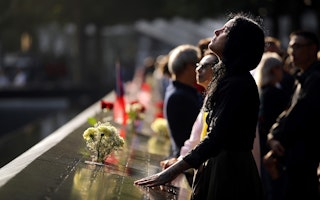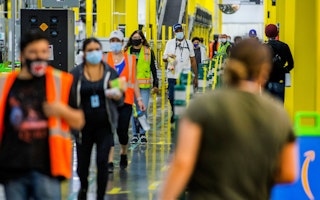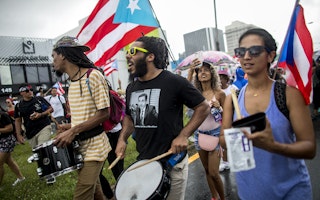I Am Sandra Bland
By Jasmine Mickens

It has been a year since the murders of Michael Brown and Eric Garner. Almost daily there is a new story of a tragic, police-involved, extrajudicial murder of an African American. By the time you finish reading this post, the list will be outdated, as new names, new hashtags, and new deeply disturbing stories of police violence surface.
I have grown hesitant to click the links, contemplating whether I want to avoid retraumatizing myself or learn more to stay informed. But I watched Sandra Bland’s encounter with police in Waller County, Texas. I felt sick to my stomach and heartbroken at the infuriating chain of events, knowing this could easily be me any day. I am Sandra Bland.
Bland was pulled over by an officer for failing to use her turn signal, and was dragged from her car, thrown to the ground, and locked in handcuffs as the arresting officer grew ever more aggressive. A college-educated black woman in her 20s, excited about her new job, she pleaded that she “couldn’t wait to go to court” during the violent encounter. A few days later, she turned up dead in a jail cell.
The video was all the more difficult to watch because it brings back memories of my own family’s brush with police brutality a few years ago.
In August 2010, I was living in New York City, and went to visit my family in New Jersey for the weekend. My brother and I had been talking on the side porch of my mom’s house, enjoying a nice summer night. A plainclothes officer, patrolling the neighborhood because of a festival down the block, requested entry without explanation.
My brother and I looked at each other, confused as to whether this person was really an officer and why they were asking.
My brother refused. “This is private property,” he told the officer, “and you don’t have probable cause or a warrant. So, I can’t do that.” The officer responded by bashing my brother in the forehead with a nightstick. As the blood ran into his eyes, he tried to defend himself against the officer’s blow, until a gang of other cops quickly arrived to join him.
The only thing I could think to myself was: no one is going to believe me when I have to retell this story.
I ran into the house to get my camera and my family. Seconds later, we came outside to see my brother’s handcuffed, limp body kneeling in a pool of blood. One officer had him in a headlock. Another kicked him in the stomach. A third hit him in the face with a walkie-talkie.
My parents ran to my brother’s aid and were immediately arrested for “obstruction of justice.” Neighbors and other family members ran to pull the cops off my brother, while others stood at a distance, begging the police to stop.
It took the officer less than two minutes to bludgeon my brother in the head. It took more than two hours to get him to the nearest hospital, which is less than a mile from my parent’s home. Once there, he received 22 stitches and 5 staples in his head.
The police said my brother incited a fight and then resisted arrest, which they maintained justified the use of force. He was prosecuted for “assaulting an officer” and “inciting a riot,” and later lost his job as a dental assistant after missing days at work for the trial.
He was later convicted of three counts of aggravated assault on an officer, and my twin brother was convicted of a felony assault on an officer. The rest of my family members—my mom, dad, aunt, uncle, and little brother—were charged with resisting arrest and obstruction of justice. The charges against them were ultimately dismissed.
What did justice look like for us? The combined bail for my family members was more than $1 million. I was a first-generation college student at the time. I signed my life away to bail bondsmen, emptying my bank account for things I needed for college to get my family out of jail. It was one of the saddest things I ever had to do.
When I went to collect everyone’s belongings from the precinct, I was told to file a complaint with Internal Affairs. I had no faith that they would find anything wrong with the officers’ behavior, that cops could fairly investigate each other.
But we never got the chance to find out. The police were able to delay the trial until it was too late for us to file for an investigation. The system seemed designed to prevent us from getting justice. Otherwise, why would these kinds of barriers exist?
My experience—and the tragedies in Ferguson, Baltimore, Cleveland, and too many other places to count—reminds us that race determines what kind of policing communities receive. White neighborhoods expect to be protected by law enforcement. Black neighborhoods expect to be profiled. And police officers are often quick to take a life, but slow to save one.
This is systemic racism—rooted in white supremacy, designed to dehumanize black people, first through slavery and commodification, and now through criminalization and mass incarceration. Plantation overseers built a legacy of institutionalized supervision, scrutiny, and slaying of black people that persists to this day in our system of policing.
What happened to my brother—to Sandra Bland, Michael Brown, Eric Garner, Walter Scott, Samuel DuBose, and so many others—could happen to me. If I acknowledge my rights in a police encounter, I could die. If I stay in my car, I can die. I get out of my car, I can die. I am minding my own business, I can die. In police custody, I can die.
Realizing this makes the work I do at the Open Society Foundations more important, and more urgent, to me. I have a platform to challenge and think through federal advocacy strategies that address the criminalization, overpolicing, and overincarceration of black communities and schools. And many of our grantees—groups like Color of Change, Race Forward, and the Perception Institute—do the important work of telling stories of racial injustice, to educate the public and apply pressure for change.
It is an uphill struggle. We are a long way from justice, from a world where Sandra Bland is still with us.
Jasmine Mickens is an advocacy officer of Programs for the Open Society Foundations.


